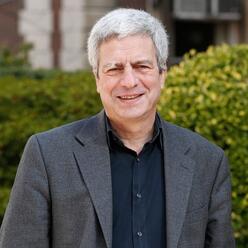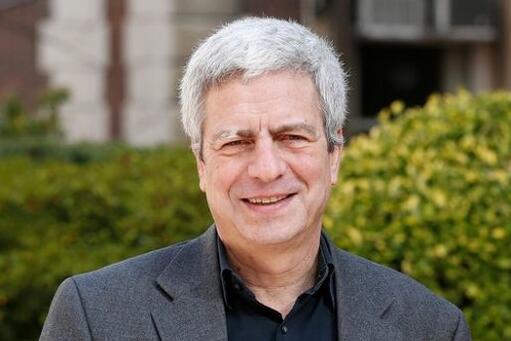Early detection is critical for improving treatment efficacy for those with autism spectrum disorder (ASD), and it’s often those closest to a child who notice the first signs. New research from Columbia Business School, Carnegie Mellon University, and the Seaver Autism Center for Research and Treatment at Mt. Sinai reveals that children who had older siblings or frequent interaction with grandparents were diagnosed earlier with ASD.
The study was the first to ask not only parents, but also friends and family members who had contact with the child about their early observations of the child. In the study, parents reported that family members were integral catalysts in diagnosing children with ASD.
Approximately 50 percent of friends and family reported that they suspected that a child had a serious condition before they were aware that either parent was concerned. The two most common categories of the relationship to the child of individuals first to raise concerns were maternal grandmothers and teachers.
The research titled, “Grandma Knows Best: Family Structure and Age Diagnosis of Autism Spectrum Disorder,” was published in the journal Autism and was co-authored by Nachum Sicherman, Carson Family Professor of Business at Columbia Business School, George Loewenstein of Carnegie Mellon University, and Teresa Tavassoli and Joseph D. Buxbaum of the Seaver Autism Center for Research and Treatment at Mt. Sinai.
“Many parents avoid seeking help to find a diagnosis for their child, even though they sense something might be wrong,” said Sicherman. “They often ignore signs of a larger problem and look the other way, making the role of close family members and friends vital to accelerating diagnosis and helping a child’s condition.” The researchers found that frequent interaction with a grandmother reduces the age of ASD diagnosis by 5.18 months, and frequent interaction with a grandfather reduces the age of diagnosis by 3.78 months.
While interactions with grandparents play an important role, family structure also impacts the age of diagnosis. Households with an only child are diagnosed with ASD on average six to eight months sooner than others. Additionally, the presence of older siblings, and especially being the youngest child, reduces the age of diagnosis by 9.5 to 10 months, compared with children who only have younger siblings. Hence, it appears that older children serve as a reference point, helping parents calibrate whether younger siblings are on-target developmentally.
“This study is unique because we asked multiple friends and family members about the factors that may contribute to age of diagnosis of autism,” said Buxbaum. “We were troubled that about half of the friends and family who were concerned about a child were reluctant to share their concerns. Importantly, frequent interaction with a grandparent, and particularly a grandmother, was associated with earlier diagnosis.” “The study provides new evidence of the occurrence of information-avoidance, and of its consequences,” said Loewenstein.
Prior research by Loewenstein and Sicherman examined information avoidance and documented an “ostrich effect” among investors, who are more likely to avoid looking up the value of their portfolio when the market is down. The research findings suggest that there are opportunities to achieve an earlier diagnosis by tapping into wisdom from friends and family. Accelerating the age of diagnosis can have long-term effects on a child’s behavior and improve overall treatment, social behavior, and IQ.
The research was supported by a generous grant from the Organization for Autism Research (OAR). To learn more about the cutting-edge research being conducted at Columbia Business School, please visit www.gsb.columbia.edu.
###
About Columbia Business School
Columbia Business School is the only world–class, Ivy League business school that delivers a learning experience where academic excellence meets with real–time exposure to the pulse of global business. Led by Dean Glenn Hubbard, the School’s transformative curriculum bridges academic theory with unparalleled exposure to real–world business practice, equipping students with an entrepreneurial mindset that allows them to recognize, capture, and create opportunity in any business environment. The thought leadership of the School’s faculty and staff, combined with the accomplishments of its distinguished alumni and position in the center of global business, means that the School’s efforts have an immediate, measurable impact on the forces shaping business every day. To learn more about Columbia Business School’s position at the very center of business, please visit www.gsb.columbia.edu.
About the Seaver Autism Center for Research and Treatment at Mount Sinai
The Seaver Autism Center for Research and Treatment at Mount Sinai conducts progressive research studies aimed at understanding the multiple causes of autism spectrum disorder (ASD).
The multidisciplinary team is composed of experts in the fields of genetics, molecular biology, model systems, neuroimaging, biomarkers, diagnosis, and experimental therapeutics who are dedicated to discovering the biological causes of ASD.
The Center strives to develop innovative diagnostics and treatments for integration into the provision of personalized, comprehensive assessment and care for people with ASD.
The Seaver Autism Center was founded through the generous support of the Beatrice and Samuel A. Seaver Foundation. For more information, visit www.seaverautismcenter.org.


